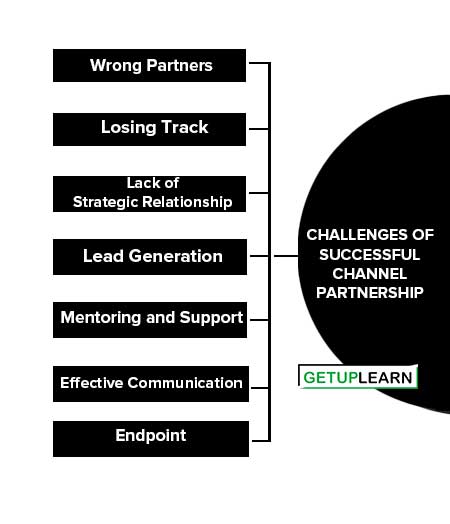Table of Contents
Challenges of Successful Channel Partnership
A successful channel partnership is critical for the continuous growth of the vendors. A strong relationship with channel partners can open the doors to new business opportunities, increased global presence, and an increase in revenue and profits.
Most vendors recognize these benefits, but they fail to nurture the channel relationship. There are some common obstacles or slip-ups that prevent vendors from leveraging the potential of channel partners fully. Some of the very common obstacles which prevent vendors from utilizing the full potential of channel partners are as follows:
- Wrong Partners
- Losing Track
- Lack of Strategic Relationship
- Lead Generation
- Mentoring and Support
- Effective Communication
- Endpoint

Wrong Partners
Recruitment of the right channel partners is the first step in optimizing channel potential. The vendors who fail to assess the partner’s potential capabilities end up incurring losses in revenue apart from the loss of brand image.
Losing Track
Once the channel partners are selected, it is important to keep track of their performance. Ignoring the performance of channel partners may prove to be costly as it will mean obstructing the revenue flow and having to manage the deals directly.
In the absence of a performance record, vendors fail to deploy a consistent methodology and process to manage high-performing partners.
Lack of Strategic Relationship
Often, vendors fail to build strategic relationships with channel partners as relationships with channel partners are only limited to transactions or tasks. When the transactions lose attraction, partners move to other vendors or suppliers. It is critical for businesses to align their goals and long-term strategies with those of channel providers.
Lead Generation
Channel partners often complain about lean lead rates. Most of the channel partners feel that vendor leads are unattainable. Often, the vendor fails to show an equitable approach with regard to giving leads to direct and indirect channels. The channels are often subjected to C, D, and E-level leads.
This treatment of the channels acts as a hindrance to the development of trust between the two parties. Unqualified opportunities and ineffective marketing campaigns are the other complaints that the partners often level against vendors.
Mentoring and Support
Product knowledge is not the only criterion for channel partners to sell products effectively. Vendors are often mistaken as they think that knowledge of products is sufficient for the channel partner to get the deals successfully. So, the channel partners need timely training, and support to become progressively more successful.
Effective Communication
Communication and feedback are most important for the partners and vendors to understand each other’s organizational goals and aspirations completely for a fruitful association. The key to effective communication is asking the right questions, listening to the answers, and making adjustments.
Endpoint
With long-term thinking, careful planning, and thoughtful investment, vendors can utilize the potential of channel partners fully. By avoiding slip-ups and remaining committed to each other, the vendor and the channel partner can help each other succeed.
FAQs Section
What are the challenges of a successful channel partnership?
The challenges of a successful channel partnership are 1. Wrong Partners 2. Losing Track 3. Lack of Strategic Relationship 4. Lead Generation 5. Mentoring and Support 6. Effective Communication 7. Endpoint.
